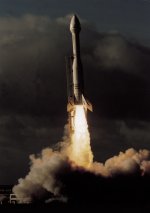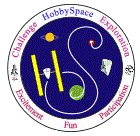|
Activism
* Space
Science
Activists
Keep Pluto
Mission Alive
Who says space activists
don't make a difference? Certainly not the scientists
and engineers now designing a spacecraft to go to the
planet Pluto.
Despite opposition from
NASA headquarters, Congress directed the agency to spend
$30 million during 2002 for the Pluto project in the
buget just passed.
The Planetary
Society led a campaign to save the mission, which
must begin soon or we lose an opportunity to study the
planet for nearly a century. In 2016 the planet's atmosphere
begins to freeze out as its orbit leads the planet farther
from the sun.
Furthermore, to reach the
outermost planet, the spacecraft needs a slingshot boost
from the planet Jupiter. Orbital trajectory analysis
indicates the launch needs to occur by 2006 to get the
required boost. The flight will nevertheless take over
a decade to reach Pluto.
Despite the urgency and
the high priority placed on the mission by the space
science community, the project was going to be canceled
due to overruns in the Space Station.
Letters
from many of the Planetary Society's 100,000 members
and pleas from space scientists, however, apparently
had a big impact on Congress and it specifically earmarked
money for the project.
NASA has since then chosen
the design team
for the project. The spacecraft will also study the
moon Charon and following the flyby it will proceed
to the Kuiper
Belt where comets originate. The group hopes to
target a specific object there for the probe to pass.
|
|
Advanced
Rocketry: * RLV
Countdown * RLV
News
Starchaser:
X-Prize Hunt Goes Nova

Launch of the Nova reusable rocket
on November 22, 2001.
Photo copyright: Starchaser
Industries Ltd
The British rocketry group Starchaser
Industries launched its largest rocket to date on November
22, 2001. The unmanned Nova,
which stands 11m (37 feet) high and weighs 747kg (1643lb),
rose to about 1,525 m. on the thrust of its solid rocket motors.
The capsule and booster separated
and parachuted back to earth. Apparently the booster parachutes
got entangled and there was some damage. However, the group
reports that " the launch was 85% successful" in
its goals of testing the launch control system, airframe,
and other components. Two more flights are said to be planned.
The primary goal of the project
is the development of the Thunderbird vehicle which aims to
win the X-prize
by taking a pilot and 2 passengers to 100km in altitude.
Steve Bennett,
a lecturer at Salford University, leads the Starchaser project.
Although part of the project is now commercialized, it welcomes
public participation via membership in its Starchaser Club.
Students at Salford also can obtain course credits working
on the many aspects of the project.
There have been various criticisms over the
past year or two of the project coming especially from other
amateur rocketry groups in England. See, for example, the
article Private
rocket launch is 'suicidal' - BBC - June.27.01.
These groups believe a more incremental approach is required
before taking on the risk of piloted flights. The British
MARS
group, in fact, "successfully tested the most powerful
rocket motor ever launched from the UK" the same week
that the Nova flew: British
experts claim rocket success - BBC - Nov.22.01
The launch and recovery of such
a large vehicle as the Nova certainly adds considerable credibility
to the Starchaser group's goals. Going the next step to the
Thunderbird, though, will be a big one. For example, the propulsion
system will require liquid fueled engines rather than a cluster
of the relatively much simpler solid motors used on the Nova.
|
Mircorp Offers the
Ultimate Grand Prize
Mircorp's
efforts to develop a space tourism business got a boost from
a recent agreement with an Asian media company to send TV
game show winners to the International Space Station: MirCorp
To Launch Game Show Winners Into Space in 2003 - Space.com
- Nov.21.01 .
This follows on with similar
arrangements with the German Space
Commander program that plans to send game winners
to space. (There was also a plan to create a Survivor style
program on the US NBC network. First called Destination Mir,
it became Destination Space after Mir was deorbited. However,
the web site for this project has disappeared, indicating
the project is most likely canceled.)
If the contestants are blocked
by NASA from visiting the ISS, they will have to be satisfied
with a few orbits in a Soyuz.
Eventually, Mircorp wants to
build its own small station for such commercial ventures:
MirCorp
announces plans for private space station - Spaceflight Now
- Sept.4.01
[December 5, 2001 - find more
info about this project in the Space
Tourism section.]
|


